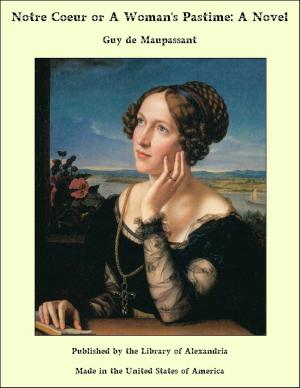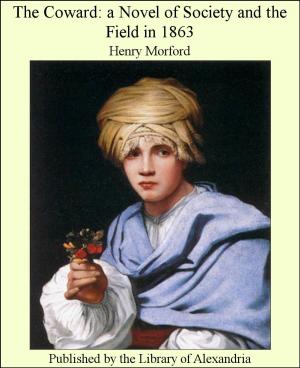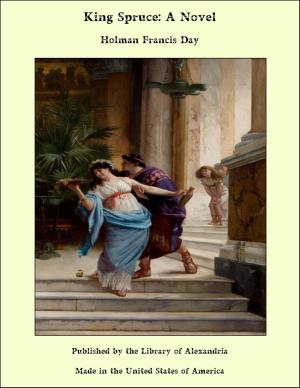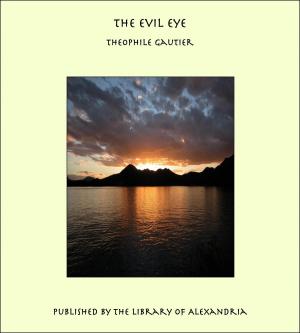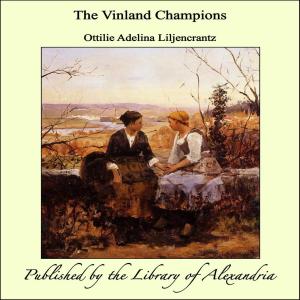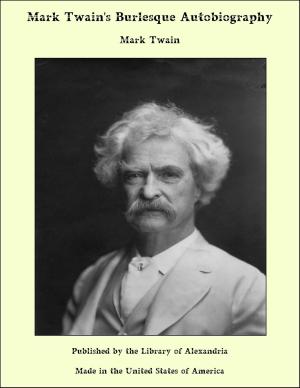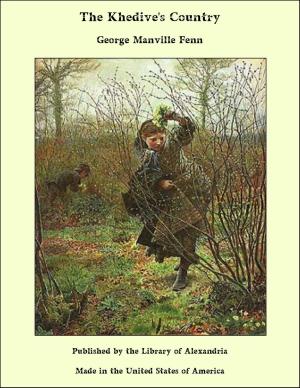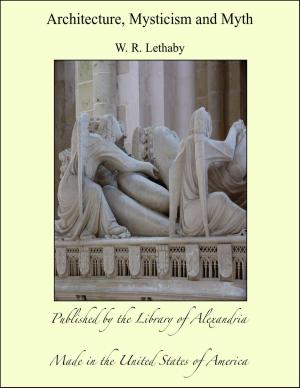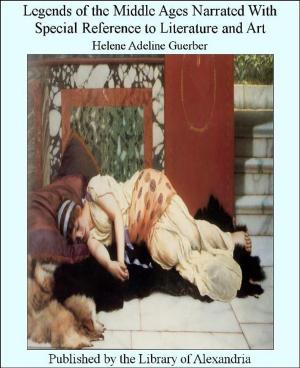Italian Yesterdays and More Italian Yesterdays
Nonfiction, Religion & Spirituality, New Age, History, Fiction & Literature| Author: | Mrs. Hugh Fraser | ISBN: | 9781465617132 |
| Publisher: | Library of Alexandria | Publication: | March 8, 2015 |
| Imprint: | Language: | English |
| Author: | Mrs. Hugh Fraser |
| ISBN: | 9781465617132 |
| Publisher: | Library of Alexandria |
| Publication: | March 8, 2015 |
| Imprint: | |
| Language: | English |
It has always seemed to me that one of the most perfect experiences within the grasp of mortals would be that of a child brought up in seclusion by an adored parent, only known to its heart and mind as such—and to find, on reaching maturity and coming out into the world, that the beloved one was the ruler of a mighty empire, venerated and feared by millions of men. How that knowledge would transfigure and ennoble the memories of childhood, of the protecting companionship bestowed, the being rocked to sleep in those strong arms, of the sunny play-hours of childhood’s day watched by those wise and loving eyes! All this was Rome to me, through many a long year before the doors were opened and the glory of her was made known to my mind. Then the old indulgent comradeship, accessible to every mood of youthful joy and sorrow, became tinged with awe and yet was doubly cherished; it grew a thousand times more precious, yet, like some holy relic that one wraps in silk and gold, had to be enshrined with other sacrednesses in the sanctuaries of memory. One was no longer Rome’s careless child, to whom all her yesterdays were playthings of equal value with her wild flowers of to-day. She called—and there was no disobeying the new command. The nursery door was closed forever, and one took one’s place silently and gladly in the last, lowest rank of her subjects and soldiers. From that moment one began to learn, weakly and imperfectly, it is true. At first the greatness of the new knowledge overwhelmed one. I remember writing to the great French Prelate who received me into the Church, that I felt like a beggar suddenly admitted into the palace of his King, dazzled with the warmth and splendour, yet utterly ignorant of which way to turn or how to comport himself in those august surroundings. I fancy others have experienced the like bewilderment, and happy they, if they fell into such wise and loving hands as those which were held out to me and finally helped me to fix on a study which, far from making the most serious of all subjects dry and unattractive, enriched it with the warmest touches of human feeling—the holy glory of the true romance. Such study, such reading, is really within reach of all in these days of almost universal translation and simplification; but so many know nothing of how to obtain the right books—so many, indeed, are utterly unconscious that there is anything to know beyond the few distorted facts doled out in non-Catholic schools, that even the most unassuming effort to share these riches with them may be useful and welcome. Modern life is apt to be a dry, unflowery affair, but that is because our own laziness of mind permits it to become so. If we choose to take the past, it is ours; and I defy any one to claim his inheritance therein and not find a heart-warming thought, a refreshment and a fragrance for every moment of solitude, a chapter of high romance for every day of the long, working year!
It has always seemed to me that one of the most perfect experiences within the grasp of mortals would be that of a child brought up in seclusion by an adored parent, only known to its heart and mind as such—and to find, on reaching maturity and coming out into the world, that the beloved one was the ruler of a mighty empire, venerated and feared by millions of men. How that knowledge would transfigure and ennoble the memories of childhood, of the protecting companionship bestowed, the being rocked to sleep in those strong arms, of the sunny play-hours of childhood’s day watched by those wise and loving eyes! All this was Rome to me, through many a long year before the doors were opened and the glory of her was made known to my mind. Then the old indulgent comradeship, accessible to every mood of youthful joy and sorrow, became tinged with awe and yet was doubly cherished; it grew a thousand times more precious, yet, like some holy relic that one wraps in silk and gold, had to be enshrined with other sacrednesses in the sanctuaries of memory. One was no longer Rome’s careless child, to whom all her yesterdays were playthings of equal value with her wild flowers of to-day. She called—and there was no disobeying the new command. The nursery door was closed forever, and one took one’s place silently and gladly in the last, lowest rank of her subjects and soldiers. From that moment one began to learn, weakly and imperfectly, it is true. At first the greatness of the new knowledge overwhelmed one. I remember writing to the great French Prelate who received me into the Church, that I felt like a beggar suddenly admitted into the palace of his King, dazzled with the warmth and splendour, yet utterly ignorant of which way to turn or how to comport himself in those august surroundings. I fancy others have experienced the like bewilderment, and happy they, if they fell into such wise and loving hands as those which were held out to me and finally helped me to fix on a study which, far from making the most serious of all subjects dry and unattractive, enriched it with the warmest touches of human feeling—the holy glory of the true romance. Such study, such reading, is really within reach of all in these days of almost universal translation and simplification; but so many know nothing of how to obtain the right books—so many, indeed, are utterly unconscious that there is anything to know beyond the few distorted facts doled out in non-Catholic schools, that even the most unassuming effort to share these riches with them may be useful and welcome. Modern life is apt to be a dry, unflowery affair, but that is because our own laziness of mind permits it to become so. If we choose to take the past, it is ours; and I defy any one to claim his inheritance therein and not find a heart-warming thought, a refreshment and a fragrance for every moment of solitude, a chapter of high romance for every day of the long, working year!


